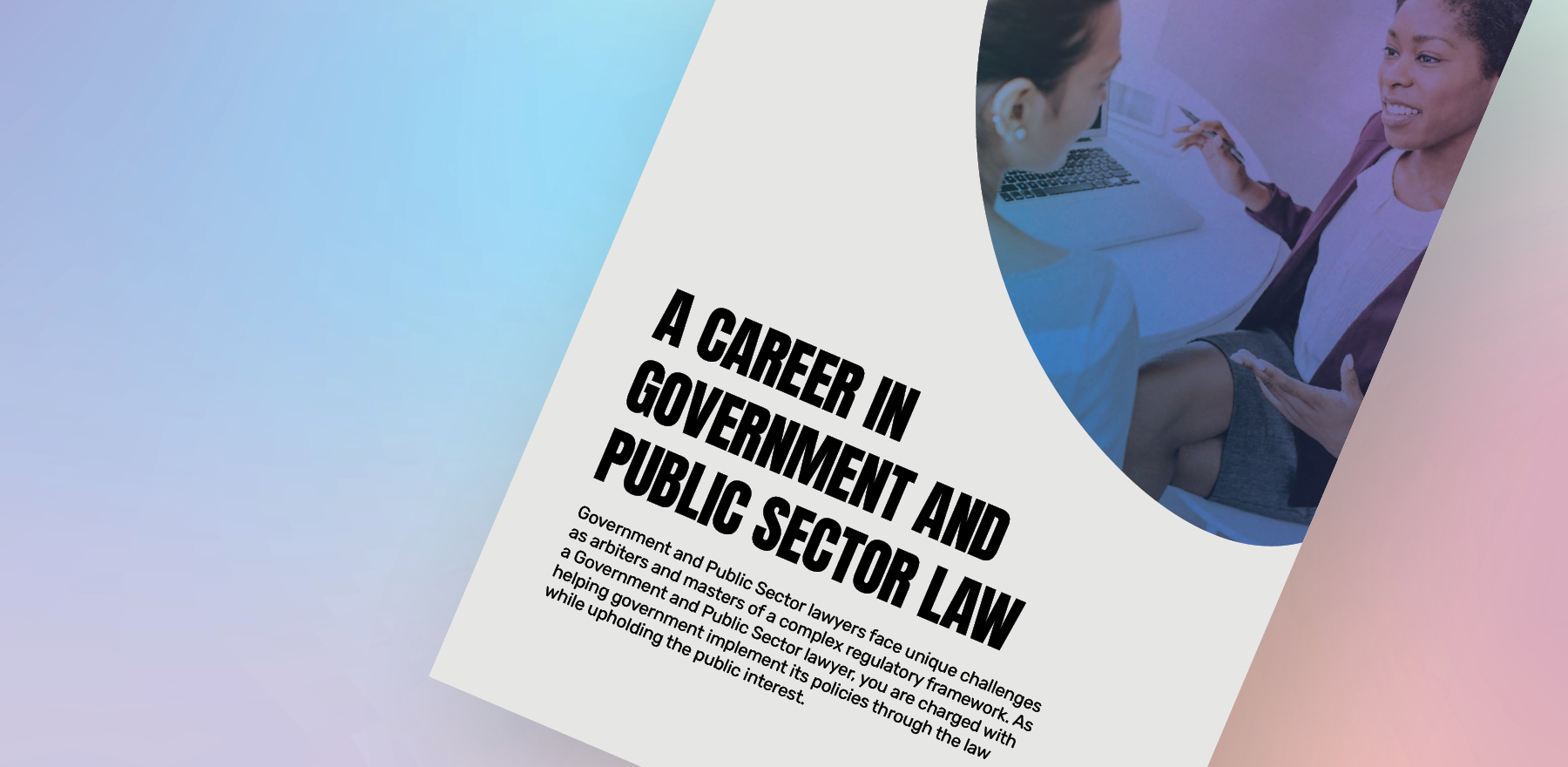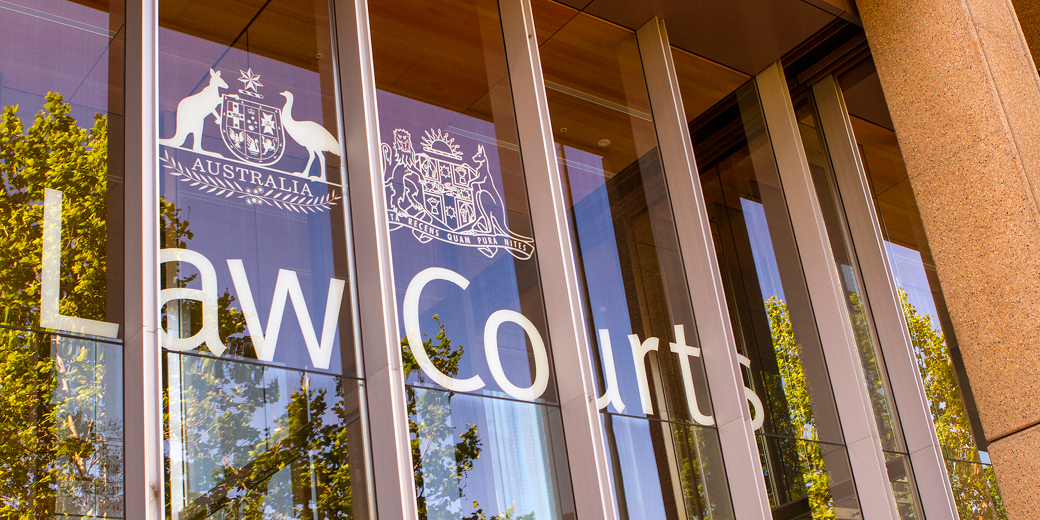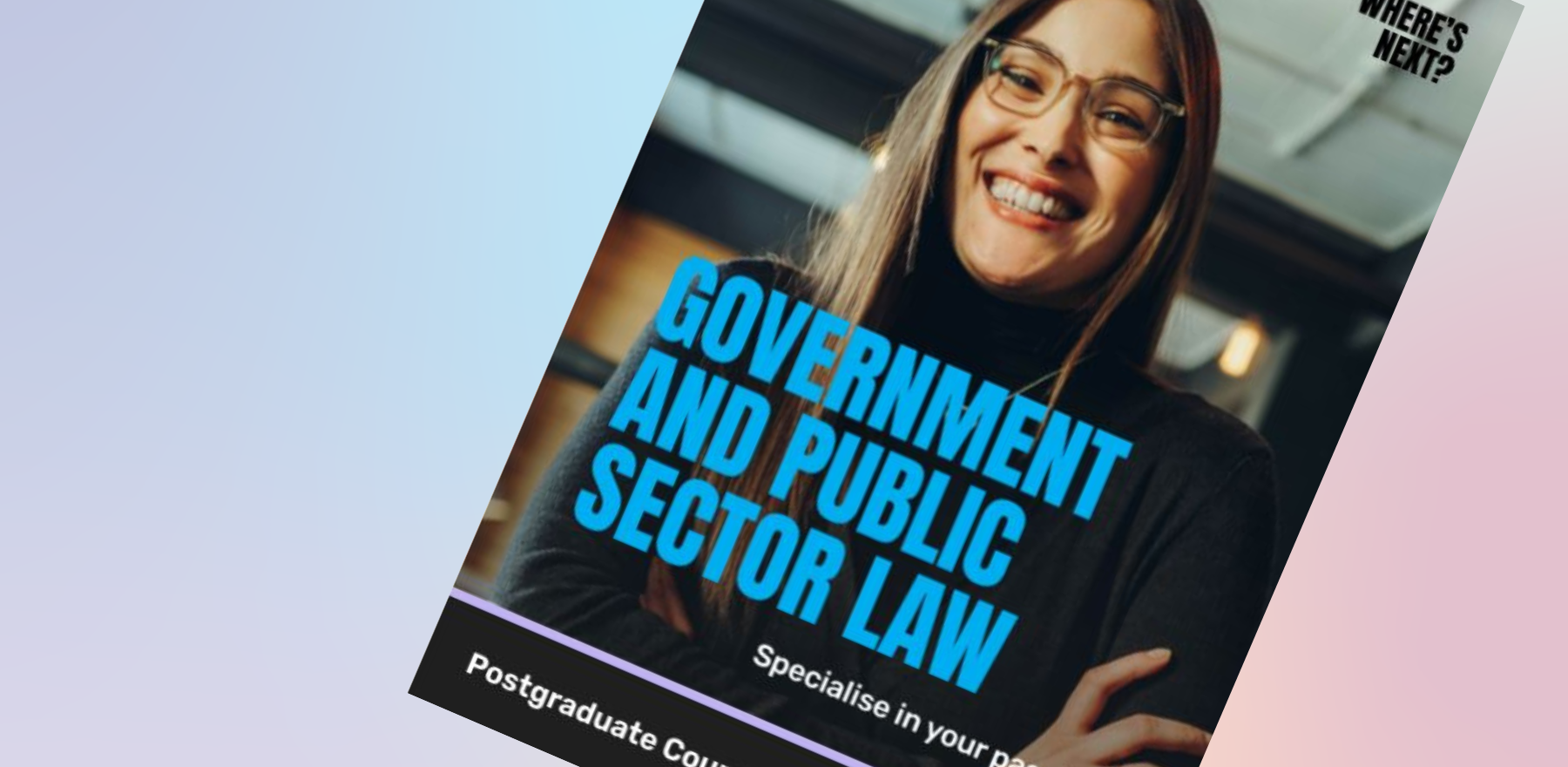See More (5)
5 results showing for '[]'
5 results showing for '[]'

Interested in the Public Sector? Meet Lisa Tozer, Public Service Interview Coach
The new year brings the chance to take a step back and assess where you want your career to go. For many lawyers, the public sector presents an opportunity to explore impactful policymaking. However, if private practice has dominated your career, the application process for the public sector can be daunting and, for the uninitiated, a little opaque. This can be true too even for career public servants.

Your Guide to a Career in Government and Public Sector Law
Download your guide to a career in government and public sector law for everything you need to know about government and public sector law in a nutshell, the personal strengths of a government and public sector lawyer, the core expertise of a government and public sector lawyer, related areas of expertise, and career prospects in government and public sector law.

How to get a government job in law: everything you need to know
Embarking on a legal career in local, state, or federal government can be an exciting move. There are many pathways for development, a broad range of practice areas, and often a healthy work-life balance. These roles are highly rewarding, and highly competitive, the College of Law tells you everything you need to know about landing a government job in law.

What’s it like to be a public prosecutor? Fighting for social justice
For young lawyers there are a vast number of career paths on offer, but for those who want to have an impact in the field of criminal law, a career with the CDPP may be what you are looking for. Unique and cutting-edge cases are par for the course when working at the CDPP, an environment Eliza Amparo, Acting Deputy Director at the CDPP, describes as “dynamic, intellectually stimulating and rewarding”.

